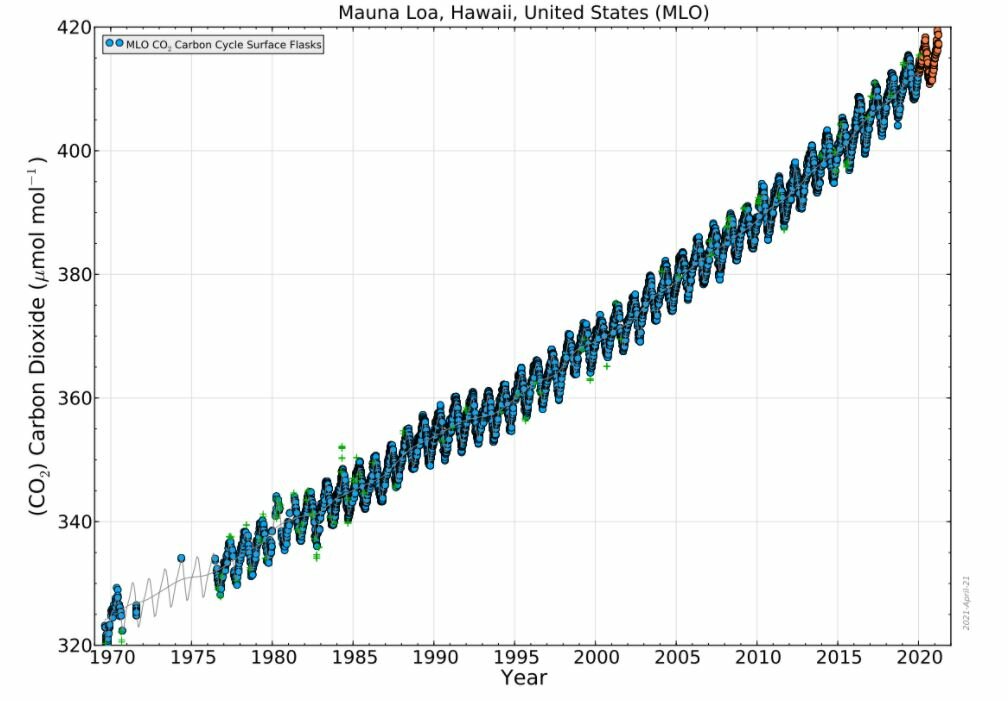Last year on Earth Day I wrote a hopeful blog on how COVID-19, and our appreciation of the changes in lifestyles imposed by the lockdowns, could possibly be the trigger that changes mindsets and halts global warming. Alas, those hopes have been belied. The greenhouse gas concentration that stood at 416 parts per million (ppm) on this day last year has now reached 420 ppm – a first in human history.

Carbon emission is expected to soar further this year with a post-pandemic economic rebound, as was observed in 2010 after the financial crisis of 2008. The International Energy Agency’s (IEA) Global Energy Review 2021 warns that the global CO2 emissions from energy are rising nearly 5% this year, suggesting the economic rebound from COVID-19 could be problematic for the climate. At the launch of the report, IEA Executive Director Fatih Birol said, "This is a dire warning that the economic recovery from the COVID crisis is currently anything but sustainable for our climate."
Global civic engagement on climate change was at its peak when the pandemic hit. Over the last year, with lockdowns and social distancing it lost much of its momentum. Many governments, both in the global North and South, have in the last year pushed through legislations that restrict the civic space and stifle civic movements.
Under the Paris Agreement, countries are meant to set more ambitious targets for emission reduction by the end of 2020 as part of their nationally determined contributions (NDCs). An analysis by UN Climate Change in February 2021 showed that the combined impact of new and updated NDCs submitted by 48 countries, which represent 40% of the signatories of the Paris Agreement, would lead to an emission reduction that would be just 0.5% lower in 2030 than in 2010. The IPCC has estimated that a 45% reduction in global CO2 emissions between 2010 and 2030 is needed to meet the temperature goal of 1.5C – and a 25% reduction to stay below 2C of global warming. Most of the world’s biggest emitters, USA and China, had yet to release their new NDCs, nearly two months after the deadline passed.
U.S. President Joe Biden has now called for a Leaders Summit on climate, which will be held on April 22 and 23. Forty world leaders are expected to participate and announce new commitments to emission reduction. The United Kingdom announced that it will set into law an ambitious target to reduce emissions by 78% by 2035 compared to 1990 levels. The EU has declared that it aims to be climate neutral by 2050, and a European climate law will turn this political commitment into a legal obligation. Switzerland is set to vote in a referendum for its own revised CO2 Act. It provides for the creation of a climate fund from incentive taxes that will enable Switzerland to invest in concrete measures to mitigate the consequences of the climate crisis both at home and in the global South. If the revised CO2 Act is passed, it will allow Switzerland to raise its ambitions and also recognize emissions caused by imports from abroad which account for two-thirds of Switzerland's CO2 footprint.
Despite the silence on the streets, these policies show that the impacts of several decades of dedicated work on climate science, policy, action and activism are now irrevocable. We, as the civil society, must continually remain focused on systemic change to transform our food, transport, energy, housing and infrastructure systems to greener, more circular and sustainable levels. As consumers, taxpayers and citizens, we must determine the pace and direction of such systemic changes.
In this melee of targets and numbers it is also important that we always remember that there are families, entire villages, ecosystems and cultures that are being destroyed by global warming. The claim to climate justice, by people who have the least responsibility for the factors that lead to global warming but are affected the most by it, must continually be our guiding light.


